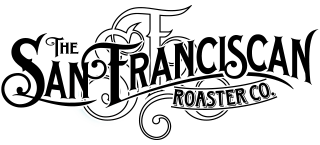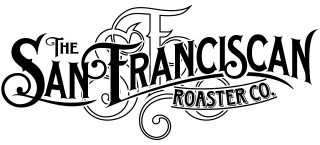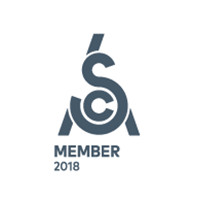

 With terms such as 'fair-trade', 'relationship', and 'quality' being thrown around in the industry, it's easy to get lost under the umbrella that is third-wave specialty coffee. It seems as if these terms have muddied over the years, and many people don't really know what happens at source. To some extent, most of us are probably guilty of this. However, one company is working to redefine producer-client relationships: 575 Café, a family-owned specialty coffee farm from Palocabildo, Colombia, and one of our good friends, is striving to educate consumers and reinvent what it means to export coffee. 575 Café will now bridge the gap between farms and cafés and establish genuine friendships between producers and roasters, all while maintaining complete transparency and accountability.
With terms such as 'fair-trade', 'relationship', and 'quality' being thrown around in the industry, it's easy to get lost under the umbrella that is third-wave specialty coffee. It seems as if these terms have muddied over the years, and many people don't really know what happens at source. To some extent, most of us are probably guilty of this. However, one company is working to redefine producer-client relationships: 575 Café, a family-owned specialty coffee farm from Palocabildo, Colombia, and one of our good friends, is striving to educate consumers and reinvent what it means to export coffee. 575 Café will now bridge the gap between farms and cafés and establish genuine friendships between producers and roasters, all while maintaining complete transparency and accountability.
In addition to redefining coffee exporting, member and director of quality, Herbert Peñaloza Correa, is changing the notion of what it means to be a roaster at origin. "There’s a paradigm in the coffee industry that origin countries can’t roast, because of the altitude, because they don’t know how, because the coffees are too fresh, or because they don’t have the machinery. We’ve just surpassed all that; we roast in altitude, we have an amazing roaster, we know how to roast our coffees, so we’re trying to become a force in roast coffee as well". I interviewed Herbert to learn more about their commitment to implementing horizontal growth in the coffee industry and becoming a roaster-at-origin.
This interview has been condensed for clarity.


What did you do before coffee, and how did you get involved in the coffee industry?
I worked as a photographer for around 13 years. I was doing mostly product and a little bit of architecture photography and I had a branding agency, so that’s semi why I got into coffee. My family bought a coffee farm about seven years ago and they gave me a call one day and said, “hey we need some pictures and branding for a new coffee brand” so I began reading about coffee – I am a bit of a nerd when it comes to something new. And that was my approach back then when I was working advertising – immerse myself in the product we’re going to ad or the branding we’re going to do or the photography I was going to take to understand a little bit more. So I did it with coffee and when I arrived to the farm – I knew a little bit so I took, I think I took like, five pictures the whole week I was there. I was mostly working and picking coffee and I came back to my studio with a lot of coffee. I was drying it on a terrace, I roasted it on a broiler, and that was my first cup of coffee from my farm and I fell it love with it I think. I started working a quarter of the time, a third of the time, half the time and I was working half the time and I was trying to move 100% to coffee, I think three years ago. We bought our San Franciscan and the same day it arrived, my uncle had an accident and he died, so I had to face the choice of getting fully into coffee or sell the farm and not continue it, so that was basically it.
Tell me a little about your coffee operation – specifically the farm.
575 actually started as a roast coffee business. The main focus from the farm was selling to the [National Federation of Coffee Growers of Colombia], to the regular Colombian market. So the main focus of the farm at the beginning was the commodity market that ends up in regular coffee shops, it has nothing to do with specialty coffee, lots of Starbuck’s. So that was the main focus and I just had like 10% of the production of the farm to do crazy stuff, to go roast it, do some honey, do different processing. So I started learning about roasting, and we found out that our green bean wasn’t as good as some clients were asking, and we couldn’t aim for the international market. We focused 100% on local market and after roasting with several roasters in the country and going to several places, fighting with some roasters, disliking a lot of roasting styles, I worked with a very good friend of mine. He’s a roaster from the US, and he was working here for a couple years. We had a chance to roast on a San Franciscan in 2014 – the only SF-6 in the country at the time – and he loved the machine. He had more experience than I did – I didn’t even know how to operate the roast, I was just copying. He loved the machine he said it was really responsive, everything was happening when it was supposed to. We were shopping for roasters, we ended up buying the San Franciscan, and that was really the turning point for our business. We became proud of our production, we became aware of the quality we were producing by roasting our coffee and learning how to roast it, and that was only achievable because the machine we had. So that was the beautiful part – we were making these great coffees that were getting rejected in the international market, because most roasters didn’t know how to treat them. So we started the green coffee business and now we do both. We do green coffee and roast coffee for local and international markets. And we started the sourcing project La Real Expedición Botánica – that project is a consulting and associative product with several other coffee growers who are walking the same path we walked a couple years ago trying to find their place as coffee growers and trying to see if they can export. So we’re trying to teach them in ways we’ve been doing things for a while and selling their green coffee as well.


Where does the name 575 Café come from?
The name comes from the coordinates of the farm. 5, -75 is the location of our new farm, and it comes from the theory that there’s no two places in the world that are the same, and the only thing we have as a coffee grower is the piece of land and the people that surround it. For me, it’s everything. All of our advertising is in Spanish. The idea was to create a brand that was very Latin, very Colombian, very farm-like and we created the brand. Everything is in Spanish, because when I was doing advertising, everyone was talking in English terms, and we hated that. We thought “we’re Colombians, we need to talk in Spanish”. So we’ve avoided English at all costs. We work with people all over the world, but we didn’t change the language. We tried to rediscover Spanish words, and we kept that for the brand. When clients meet us, we speak English, and they ask why we advertise in Spanish, but international clients only like the pretty pictures. There are coffee growers in Latin America, and they want to know what we’re doing, and we teach them over social media.
What is your favorite coffee that you’re roasting right now?
There’s one I’m sharing with you, that has to be one of my favorite ones. It’s a micro-lot from a woman called Edilma Urresty – I go ultra-light with it, it’s like so floral and so bright and so fruity. I really like that one and it’s been my favorite. There’s another called Borrachito – in Spanish it means ‘the drunken boy’. The name comes from the processing – it’s an under-ripe coffee, we do special processing like long fermentation, and yeast we create at the farm, and homemade liquor; and it’s been weird, interesting, strange, it’s been challenging. I haven’t been able to tame it, but it’s one of my favorites.


You talk about how your roaster is the highest roaster in the world. What are some of the challenges of roasting at such a high altitude?
[The Roaster] is at 8,990 ft. high. The air-flow is one of them. I’ve always roasted in high altitude, so lately that I’ve been roasting in the US a little bit, I found that reactions happen a lot slower than here. Everything here happens fast, so you can do really fast and aggressive roasts with good developing and without burning stuff cause it just goes. I’m a really aggressive roaster here, in Colombia, and that’s mostly because of San Franciscan and what it allows me to do at high altitude. We actually changed the fan this week finally, I carried it in my backpack from one of my last trips back to Colombia. We just installed it, so it will change the whole air-flow game once again. The main challenge is trying to tone down aggressiveness cause you can end up with some pretty underdeveloped coffees but at the same time, if you know how to anticipate some moments, I believe you can develop coffees really well and have really clean roasts because of the shorter time. That’s something you can’t always get at sea-level, so we don’t have to compromise.
What has been your favorite part of traveling around the world meeting different people in the industry and seeing their shops?
It wasn’t the intention at the beginning, but I honestly got a little bit tired of the industry in Colombia, in the coffee-scene, it wore me out really fast. I haven’t been a huge city fan, I’m a farm boy, but when I went out the first couple times and spoke with really good roasters and had time to share with good coffee professionals, I started going to shops where people really understand the craft and really respect the bean, and that’s something you don’t see in Colombia. We’re a coffee producing country but coffee is so common you’re just a coffee grower and that’s it. When you go to a coffee shop in the US and meet roasters and people who work in coffee and really love coffee, like damn, you’re a coffee grower –they want know everything. I love that they respect my work. And of course having really good coffees you don’t see here – especially origins, things you can’t taste in Colombia. I love meeting professionals, seeing what they do with coffees, some people really work magic and do amazing stuff and really love what they do and are really passionate about it. Coffee, for me, is a social beverage – you meet a friend at university, and you don’t want to seem like a drunk guy, so you meet for coffee. You’re interested in a girl, you invite her to have coffee. Or you meet people, want to hang out and talk about something without getting inebriated, you get coffee. It’s a really social beverage. It translates into the industry, it’s a very social industry as well. A lot of people joke that there’s a lot of rejects in the specialty coffee industry, and it’s true of course, but it’s so universal that it allows people from a lot of different disciplines to get into it and that’s great when you meet interesting people within the industry. It’s great to see people you’ve seen before and they recognize you. I go there, and I don’t speak of business, I just chill, drink beer, and hang out, and it becomes trips to visit friends more than just working. The fact that most of us are rejects from other industries, is that we chose coffee and made that decision because we love it, we’re good, it’s profitable – which is a lie it’s not profitable at all. There’s a saying in Colombia, the only ones who make money are the ones doing the machines, so good for you guys – but we chose to be in coffee so it’s interesting to go around and meet people, it fits your soul.


Where do you see your company going, and what are some of your goals?
We’re mainly coffee growers, without our farms, we couldn’t do anything else. If we lost the farm, we won’t continue coffee, that’s the heart of everything, what allows you to understand the process of coffee from beginning to end but also people and what you have to go through to produce coffee. Growing coffee, more than a privilege, is a responsibility with our community and our labor. The main goal is to grow the farms; we just bought a new farm it’s 54 acres, maybe 15 of that is protected rainforest, we have some rivers and a water fall. But that’s the main goal: to bring the farm ahead. Coffee farming is not that profitable, to be honest, unless it becomes profitable. So I’m starting from scratch; the farm has nothing, not even a road, so we have to bring some machetes and a couple shovels and open a road to get into the farm. We’ve been having to get 60-70 lbs. of coffee on pulleys on our shoulders up the mountains, we’ve been using mules, horses, we’ve been doing everything by hand. We want to be able to show that you can start everything from scratch and make it profitable, but at the same time we’re putting like 19 different varietals, a lot of things that aren’t common in specialty coffee, so that’s going to be interesting as well. But in order to have capital to make that farm work, we need to expand our green coffee business. This year we will not have production, so we need to make sure everything will grow next season. Of course, we want to grow the roast coffee business, so we’re looking for a new office right now. We want to grow everything. We want to keep the farm as the main goal, the community out on the farm, because we don’t only work with the farm, we work with neighbors as well. We want to do farm community, grow the green coffee business, and grow our roast coffee business.
Find 575 Café on their website, Facebook, Twitter, and Instagram.
To learn more about La Real Expedición Botánica, visit their Instagram.










 Treeline Coffee has seen some changes over the past few years. Originally titled Little Red Wagon, co-owner Natalie Van Dusen began roasting on an SF6 out of a converted trailer five years ago. After a change in ownership, Natalie and her business partner, Deejay, decided it was time to rebrand the company, and Treeline was born. Based on the idea that coffee should fuel you to do what you love, Treeline Coffee is inspired by travelers, adventurers, and outdoor enthusiasts.
Treeline Coffee has seen some changes over the past few years. Originally titled Little Red Wagon, co-owner Natalie Van Dusen began roasting on an SF6 out of a converted trailer five years ago. After a change in ownership, Natalie and her business partner, Deejay, decided it was time to rebrand the company, and Treeline was born. Based on the idea that coffee should fuel you to do what you love, Treeline Coffee is inspired by travelers, adventurers, and outdoor enthusiasts.







